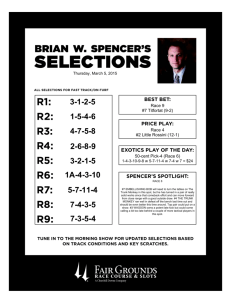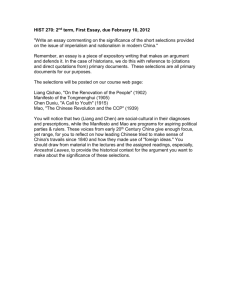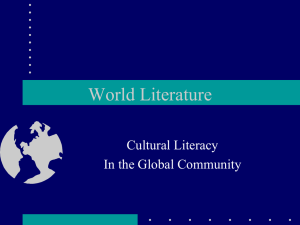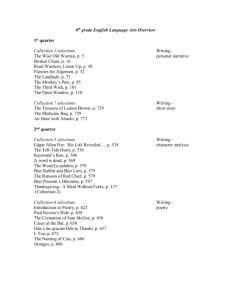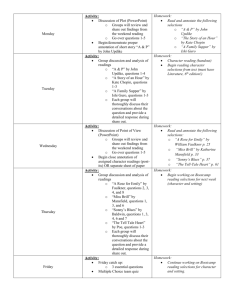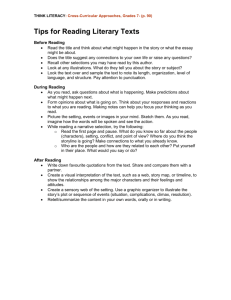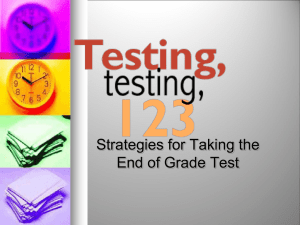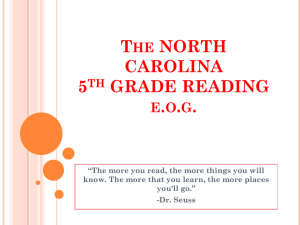Table of Contents - Baton Rouge Community College
advertisement
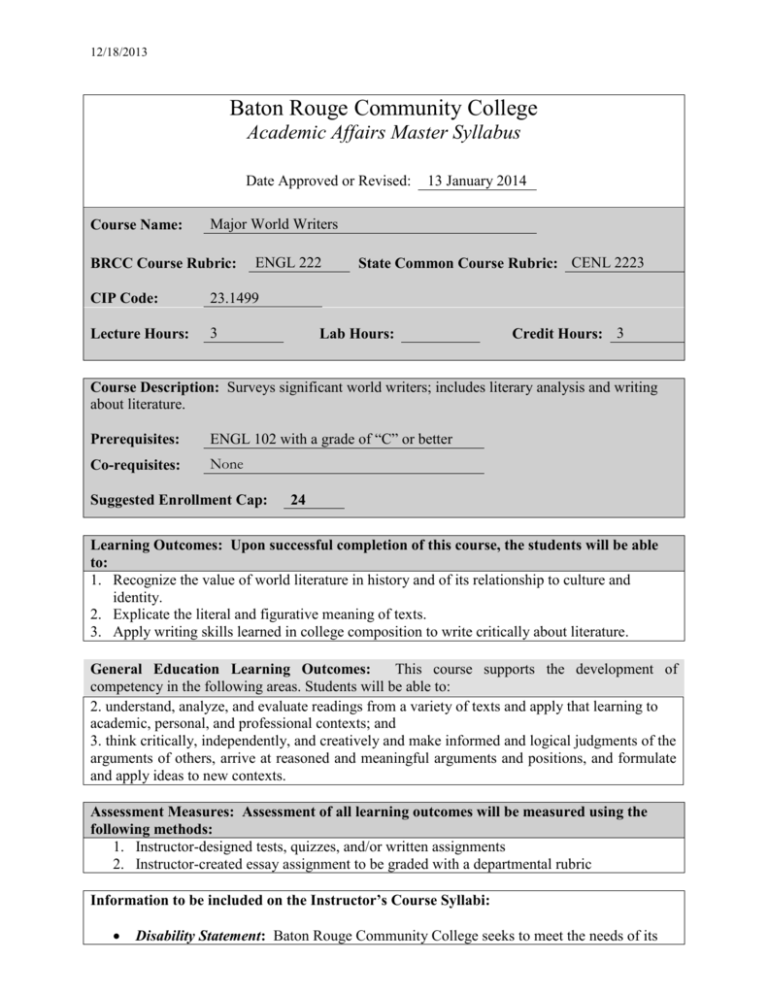
12/18/2013 Baton Rouge Community College Academic Affairs Master Syllabus Date Approved or Revised: Course Name: 13 January 2014 Major World Writers BRCC Course Rubric: ENGL 222 CIP Code: 23.1499 Lecture Hours: 3 State Common Course Rubric: CENL 2223 Lab Hours: Credit Hours: 3 Course Description: Surveys significant world writers; includes literary analysis and writing about literature. Prerequisites: ENGL 102 with a grade of “C” or better Co-requisites: None Suggested Enrollment Cap: 24 Learning Outcomes: Upon successful completion of this course, the students will be able to: 1. Recognize the value of world literature in history and of its relationship to culture and identity. 2. Explicate the literal and figurative meaning of texts. 3. Apply writing skills learned in college composition to write critically about literature. General Education Learning Outcomes: This course supports the development of competency in the following areas. Students will be able to: 2. understand, analyze, and evaluate readings from a variety of texts and apply that learning to academic, personal, and professional contexts; and 3. think critically, independently, and creatively and make informed and logical judgments of the arguments of others, arrive at reasoned and meaningful arguments and positions, and formulate and apply ideas to new contexts. Assessment Measures: Assessment of all learning outcomes will be measured using the following methods: 1. Instructor-designed tests, quizzes, and/or written assignments 2. Instructor-created essay assignment to be graded with a departmental rubric Information to be included on the Instructor’s Course Syllabi: Disability Statement: Baton Rouge Community College seeks to meet the needs of its students in many ways. See the Office of Disability Services to receive suggestions for disability statements that should be included in each syllabus. Grading: The College grading policy should be included in the course syllabus. Any special practices should also go here. This should include the instructor’s and/or the department’s policy for make-up work. For example in a speech course, “Speeches not given on due date will receive no grade higher than a sixty” or “Make-up work will not be accepted after the last day of class.” Attendance Policy: Include the overall attendance policy of the college. Instructors may want to add additional information in individual syllabi to meet the needs of their courses. General Policies: Instructors’ policy on the use of things such as beepers and cell phones and/or hand held programmable calculators should be covered in this section. Cheating and Plagiarism: This must be included in all syllabi and should include the penalties for incidents in a given class. Students should have a clear idea of what constitutes cheating in a given course. Safety Concerns: In some programs this may be a major issue. For example, “No student will be allowed in the safety lab without safety glasses.” General statements such as, “Items that may be harmful to one’s self or others should not be brought to class.” Library/ Learning Resources: Since the development of the total person is part of our mission, assignments in the library and/or the Learning Resources Center should be included to assist students in enhancing skills and in using resources. Students should be encouraged to use the library for reading enjoyment as part of lifelong learning. Expanded Course Outline: I. Minimum number of words students should write 4500 words (including essays, tests, quizzes, and journals) II. Epic Tradition A. Epic conventions B. Origin and historical impact of the epic as a genre C. Suggested readings: 1. Gilgamesh 2. Homer – The Iliad 3. Homer – The Odyssey 4. Virgil – The Aeneid 5. Dante – The Divine Comedy III. Prose, poetry, drama, and/or critical essays A. Mixture of genres B. Suggested readings: 1. Aeschylus – The Orestia 2. Sophocles – Oedipus Rex 3. Aristophanes – Lysistrata 2 4. Euripedes – Medea 5. Selections from Plato 6. Selections from St. Augustine 7. Boccaccio – The Decameron 8. Machiavelli – The Prince 9. Selections from Michel de Montaigne 10. Selections from Miguel de Cervantes 11. Selections from The Book of Songs 12. Selections from Liu Xiang, Ban Zhao, Li Yu and other medieval Chinese and Japanese writers 13. Selections from Moliere 14. Selections from Aesop 15. Selections from Coyote Tails 16. Selections from Johan Wolfgang Von Goethe 17. Selections from Ghalib 18. Selections from Alexander Pushkin 19. Selections from Charles Baudelaire 20. Selections from Anton Chekov 21. Selections from Lu Xun 22. Selections from Franz Kafka 23. Selections from Anna Akhmatova 24. Selections from Boris Pasternak 25. Selections from Pablo Neruda 26. Selections from Bertolt Brecht 27. Selections from Mishima Yukio 28. Selections from Cesar Vallejo 29. Selections from Jorge Luis Borges 30. Selections from Nagib Mahfouz 31. Selections from Chinua Achebe 3
